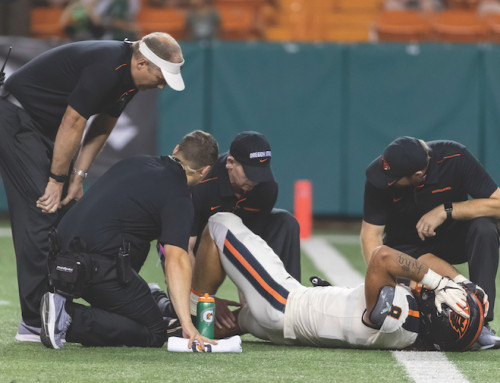The United States Court of Appeals for the 6th Circuit recently ruled that a man involved in a heroin conspiracy was not denied his right to due process or an effective attorney.
The federal court affirmed the judgment of the U.S. District Court for the Northern District of Ohio where defendant Jabbar Spires was convicted by a jury of conspiracy to possess with intent to distribute heroin and three counts of use of a telephone to facilitate drug trafficking.
Spires was sentenced to 30 months of imprisonment with three years of supervised release.
In his appeal, Spires argued that the trial court’s refusal to extend his trial date violated his Sixth Amendment right to counsel and his Fifth Amendment procedural due-process rights.
According to a summary of the case, Spires was indicted in December 2014 along with five codefendants on 51 counts related to the drug conspiracy.
Initially, Spires pleaded guilty to two counts of the indictment but then filed motions to withdraw his pleas and dismiss his counsel.
On March 11, 2015, the district court granted the motion to dismiss counsel and appointed a new attorney. After a hearing, the guilty pleas were also withdrawn.
A trial was set for April 13, 2015, the same date that Spires’s codefendants would be tried. Although Spires’s new attorney attempted to persuade the court to try him separately, the request for adjournment was denied with the court noting that the newly appointed attorney had plenty of time to prepare.
In his appeal to the 6th Circuit court, Spires argued that, in keeping the trial date set for 28 days after his new counsel was appointed, the district court “effectively declined to afford assigned counsel sufficient time within which to prepare for trial” thereby depriving Spires of the effective assistance of counsel.
Writing on behalf of the federal court’s three-judge appellate panel, Judge Helene White noted that Spires never filed a motion for continuance.
“Rather, at the hearing on Spires’s motion to withdraw his guilty plea, counsel asked for time to confer with Spires about whether he could proceed to trial the following week and stated he would notify the court if he needed an extension,” White wrote. “When the court asked why an extension would be necessary, counsel stated only that he wanted to file several motions.”
Although Spires’s attorney never presented the argument to the district court, in the appeal he contended that he had inadequate time to prepare for trial.
“Moreover, counsel was appointed a month before the trial and, at the April 8, 2015 hearing, he acknowledged that he had had the discovery for ‘ages,’” White wrote.
The appellate panel held that Spires did not provide any reason as to why 28 days was not enough time for his attorney to prepare.
“Nor has Spires shown that the court’s denial of a continuance prejudiced his defense,” White wrote. “He argues that if he had had time, he would have filed motions to suppress any statements he made out side the presence of counsel, wiretap evidence, evidence not directly connected to Spires but rather to other codefendants and ‘jargon and/or to appoint an expert to interpret the language in the intercepted phone calls.’”
But Spires’s argument that he would have filed the motions was contradicted by the fact that he did file two motions after his hearing seeking to prohibit the government from introducing testimony about officers’ interpretation of words used by the defendants in phone conversations and testimony related to the traffic stop of a codefendant and seizures from other codefendants’ homes.
“As to the other two potential motions to suppress, Spires provides no indication of the arguments he would have made in those motions, why they could not have been filed when the other motions were filed or why they would have succeeded,” White wrote.
The court of appeals ultimately disposed of Spires’s argument after concluding that the district court did not abuse its discretion or prejudice Spires.
Judge Laurie Michelson, sitting by designation from the U.S. District Court for the Eastern District of Michigan, joined Judge Jane Stranch to concur with White.
The case is cited United States v. Spires, case No. 15-3897.








